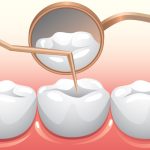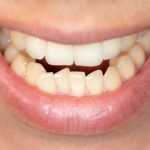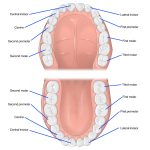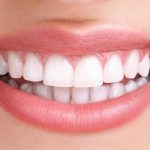Say Goodbye to Calcium Deposits on Teeth: Effective Tips and Tricks
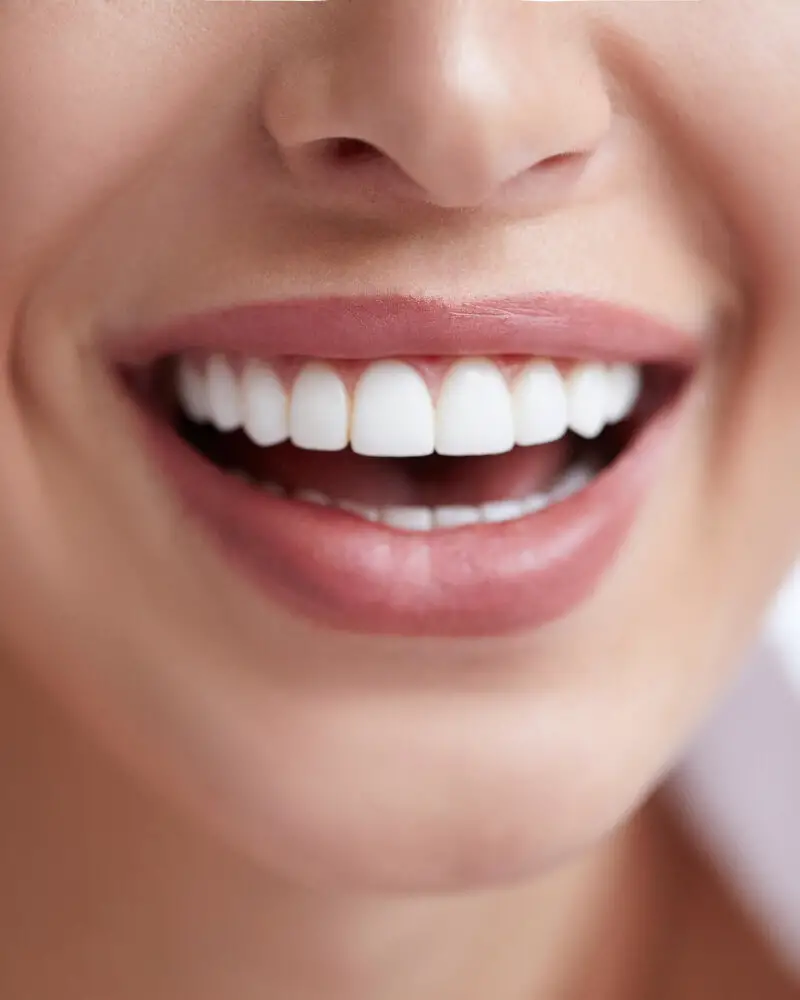
Calcium deposits on teeth can be a frustrating and unsightly issue that many people face. These deposits, also known as tartar or calculus, occur when plaque on teeth hardens over time. Not only do they cause yellowing and discoloration of the teeth, but they also create a rough surface that can lead to further buildup of bacteria and tooth decay. Fortunately, there are several tips and tricks that can help individuals remove and prevent calcium deposits on their teeth, leaving them with a healthy and sparkling smile. One effective way to remove calcium deposits is through regular brushing and flossing. Brushing twice a day with fluoride toothpaste and flossing daily can help remove plaque before it has a chance to harden into tartar. Additionally, using an antiseptic mouthwash can kill bacteria and freshen breath, further preventing the buildup of plaque and tartar. However, if calcium deposits have already formed, a professional dental cleaning may be necessary to remove them. In this article, we will explore more tips and tricks for removing and preventing calcium deposits on teeth, so that you can maintain a bright and healthy smile.
Calcium deposits on teeth, also known as dental calculus or tartar, are hard mineral deposits that form on the surface of teeth, particularly along the gum line. These deposits are formed when saliva, food, and other substances in the mouth combine with bacteria to create a sticky film called plaque. Over time, the plaque hardens and calcifies, forming tartar. Calcium deposits on teeth are unsightly and can lead to a host of dental problems, such as gum disease, cavities, and tooth loss. Regular brushing and flossing help prevent the formation of tartar, but once it has formed, it can only be removed by a dental professional using special tools.
Calcium deposits on teeth, also known as tartar or calculus, can have a negative impact on oral health. The buildup of these deposits can lead to gum disease, bad breath, and tooth decay. Tartar forms when plaque, a sticky film of bacteria, is not removed through regular brushing and flossing. Over time, this plaque hardens and turns into tartar, which cannot be removed by brushing alone. Professional cleanings and proper oral hygiene habits can help prevent the formation of calcium deposits and maintain healthy teeth and gums. By saying goodbye to calcium deposits on teeth, individuals can improve their overall oral health and avoid potential dental problems.
Home Remedies to Remove Calcium Deposits on Teeth
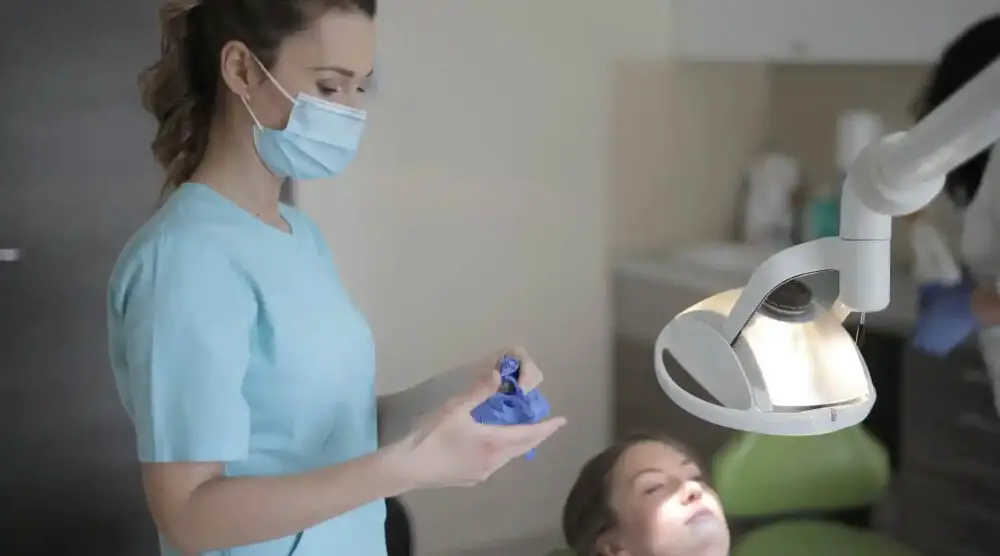
Calcium deposits on teeth can be quite unsightly and cause discomfort. While it is important to regularly visit the dentist for professional cleaning, there are also effective home remedies that can help remove these deposits. One such remedy is oil pulling. This ancient Ayurvedic practice involves swishing oil, usually coconut or sesame oil, in the mouth for 20 minutes before spitting it out. Oil pulling is believed to not only remove calcium deposits but also improve overall oral hygiene by reducing bacteria and plaque buildup. Another effective home remedy for removing calcium deposits on teeth is baking soda. This common household ingredient has natural whitening properties and can help break down the buildup of calcium deposits. Simply mix a small amount of baking soda with water to create a paste, and brush your teeth with it for 2-3 minutes. It is important not to use baking soda too frequently as it can be abrasive and damage tooth enamel. However, using it once or twice a week can be a safe and effective way to remove calcium deposits and improve the appearance of your teeth.
Home remedies are natural and cost-effective ways to treat calcium deposits on teeth. These remedies are often easily available, and they can provide relief for those who prefer to avoid expensive dental treatments. One of the most popular remedies is oil pulling, which involves swishing coconut oil in the mouth for 10-20 minutes to remove toxins and bacteria. Another remedy is to apply a paste of baking soda and water to the teeth and leave it for a few minutes before rinsing. Additionally, consuming vitamin K-rich foods, such as kale and spinach, can help prevent the buildup of calcium deposits on teeth. These remedies are easy to incorporate into a daily routine and can help maintain healthy teeth and gums.
Calcium deposits on teeth, also known as tartar or calculus, can be a stubborn and unsightly problem. However, there are several effective methods for removing them. One of the most effective ways is to visit a dentist for a professional cleaning, as they have the tools and expertise to remove even the most stubborn deposits. At home, using a soft-bristled brush and toothpaste specifically designed for tartar control can help prevent and remove buildup. Additionally, incorporating mouthwash into your daily oral hygiene routine can help kill bacteria and prevent further buildup. Finally, maintaining a healthy diet and avoiding sugary and acidic foods can help prevent the development of calcium deposits on teeth in the first place. By combining these methods, you can effectively remove and prevent calcium deposits on teeth for a brighter, healthier smile.
Using home remedies to remove calcium deposits on teeth has several advantages. Firstly, they are cost-effective and readily available, making them an accessible option for everyone. Secondly, home remedies are often natural and therefore, do not contain any harsh chemicals that may cause damage to the teeth. Thirdly, they are easy to use and can be done in the comfort of your own home, saving time and money on expensive dental appointments. Additionally, home remedies can be tailored to individual needs, allowing for personalized treatment. Finally, using home remedies promotes a healthy lifestyle and encourages individuals to take responsibility for their own health and well-being. Overall, the benefits of using home remedies for removing calcium deposits on teeth are numerous, making them a viable and effective option for those looking to improve their oral health.
Professional Treatment for Removing Calcium Deposits on Teeth

Calcium deposits on teeth, also known as tartar or dental calculus, are a common dental problem that affects people of all ages. While regular brushing and flossing can help prevent the buildup of plaque, tartar can only be removed through professional dental cleaning. A professional cleaning involves the use of specialized tools and techniques to remove plaque, tartar, and other debris from your teeth and gums. Your dentist or dental hygienist will use a scaler to scrape away the tartar from your teeth, and then polish them to remove any remaining stains. This process not only helps to improve the appearance of your teeth, but also helps to prevent gum disease and other dental problems. If you have severe tartar buildup on your teeth, your dentist may recommend a deep cleaning or scaling and root planing procedure. This involves removing tartar and bacteria from beneath the gumline, and smoothing out the roots of your teeth to promote healing and prevent future buildup. Your dentist may also prescribe antibiotics or other medications to help prevent infection and promote healing. Overall, professional treatment is the most effective way to remove calcium deposits on teeth and restore your oral health. So, if you are struggling with tartar buildup or other dental problems, be sure to schedule an appointment with your dentist today.
Professional dental treatments like scaling and polishing are essential for maintaining healthy teeth and gums. Scaling is a deep cleaning process that involves removing plaque, tartar, and other debris that have accumulated on the teeth and below the gum line. This procedure is typically performed by a dental hygienist using specialized tools, and it can help prevent gum disease and tooth decay. Polishing, on the other hand, involves smoothing the surface of the teeth to remove any stains or discoloration. This treatment can help improve the appearance of your teeth and give you a brighter, more confident smile. Together, scaling and polishing are crucial components of regular dental care and can help keep your teeth and gums healthy for years to come.
Choosing the right dental professional is crucial for effective treatment of calcium deposits on teeth. One should look for a dental clinic that has experienced and qualified dentists who specialize in dealing with such dental conditions. It is important to do some research about the dentist’s credentials, experience, and reputation in the market. One can also take recommendations from friends, family or colleagues who have undergone similar treatment. Additionally, one should ensure that the dental clinic has the necessary equipment and technology to provide the latest treatment options for calcium deposits on teeth. A good dental professional will not only provide the right treatment but also guide the patient on maintaining good oral hygiene to prevent such conditions in the future.
Professional treatment is highly advantageous when it comes to dealing with calcium deposits on teeth. One of the key benefits is that it offers a more thorough and effective cleaning than what can be achieved at home. Dental professionals have access to specialized tools and techniques that can remove even the most stubborn stains and deposits. In addition, professional treatment can help to prevent further buildup and decay, which can lead to more serious dental issues in the future. By investing in professional treatment, individuals can enjoy a brighter, healthier smile and overall improved oral health.
Prevention Tips for Calcium Deposits on Teeth
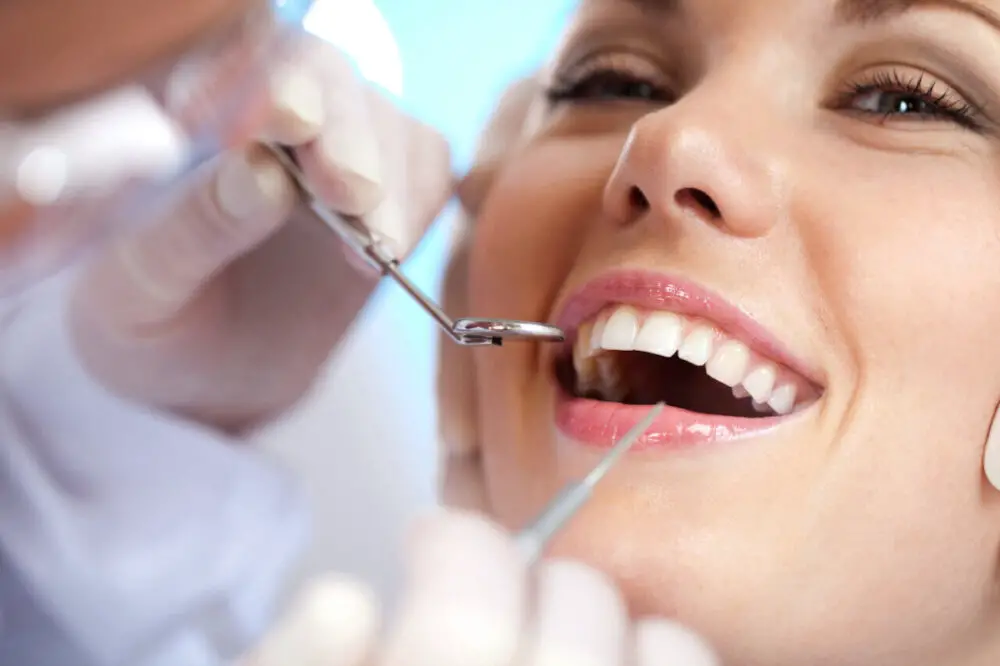
Calcium deposits on teeth can be a serious issue that can lead to tooth decay, gum disease, and bad breath. Luckily, there are several prevention tips that can help you avoid this problem. First and foremost, it is important to maintain good oral hygiene practices such as brushing your teeth twice a day and flossing daily. This helps to remove any food particles or plaque that can cause calcium buildup on your teeth. Additionally, using an antiseptic mouthwash can help to kill any bacteria in your mouth that can contribute to calcium deposits. Another important prevention tip is to avoid consuming sugary or acidic foods and drinks. These types of foods and drinks can erode the enamel on your teeth, which can make them more susceptible to calcium buildup. Instead, opt for foods that are rich in calcium and other essential vitamins and minerals, such as milk, cheese, and leafy green vegetables. Finally, it is important to visit your dentist regularly for checkups and cleanings. This can help to identify any potential issues early on, before they become more serious problems. By following these prevention tips, you can keep your teeth healthy and free from calcium deposits.
Calcium deposits on teeth can be unsightly and difficult to remove, but there are several ways to prevent them from forming in the first place. One effective method is to maintain good oral hygiene habits, such as brushing your teeth twice a day and flossing daily. Additionally, avoiding foods and drinks that are high in sugar or acid can help prevent calcium deposits from forming. Regular visits to the dentist for cleanings and check-ups can also help keep your teeth healthy and free from calcium deposits. Finally, using a fluoride toothpaste or mouthwash can strengthen your teeth and make them more resistant to calcium deposits. By following these simple tips and tricks, you can say goodbye to calcium deposits on your teeth and enjoy a healthy, beautiful smile.
Maintaining oral hygiene is crucial for healthy teeth and gums, and preventing calcium deposits on teeth. To do this, brush your teeth at least twice a day for two minutes each time, using a fluoride toothpaste and a soft-bristled brush. Floss daily to remove food particles and plaque from between your teeth, and consider using an antiseptic mouthwash to kill bacteria and freshen your breath. Limit your intake of sugary and acidic foods and drinks, and avoid tobacco products. Visit your dentist regularly for check-ups and cleanings, and be sure to address any dental problems promptly. By following these simple steps, you can keep your teeth healthy and free from unsightly calcium deposits.
Prevention tips are an essential aspect of maintaining good oral health, and they provide numerous advantages. By following these tips, individuals can avoid the buildup of calcium deposits on their teeth, which can lead to various dental issues such as gum disease, bad breath, and tooth decay. Additionally, implementing prevention techniques such as brushing and flossing regularly, avoiding sugary and acidic foods, and visiting the dentist regularly, can help individuals save on dental costs in the long run. Moreover, prevention tips can enhance an individual’s overall well-being, as good oral health is closely linked to overall health. Overall, incorporating prevention tips into one’s daily routine can lead to numerous benefits, including a healthier and brighter smile.
Diet and Lifestyle Changes to Prevent Calcium Deposits on Teeth
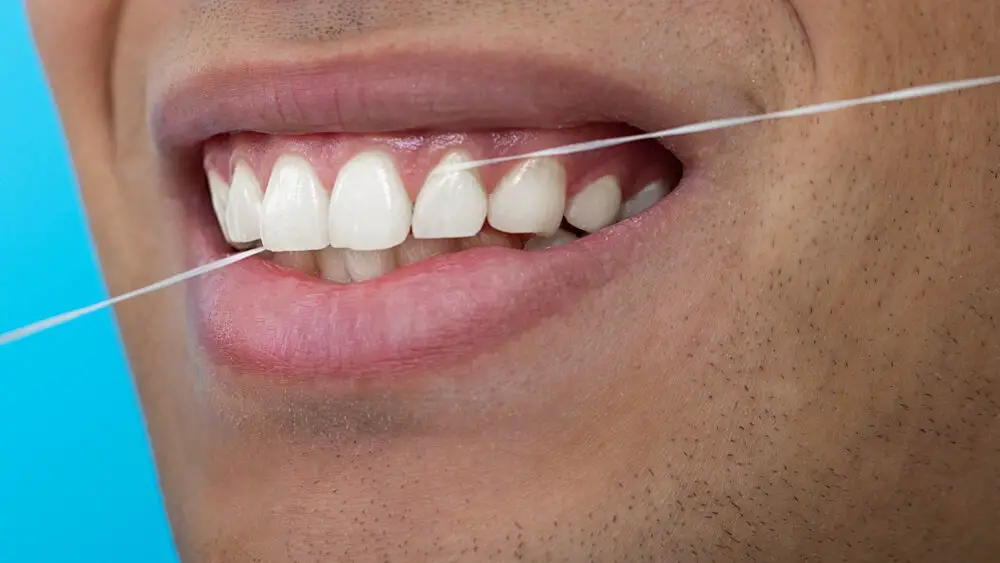
Calcium deposits on teeth can be unsightly and can lead to decay and tooth loss if left untreated. Preventing the buildup of these deposits requires a combination of diet and lifestyle changes. First and foremost, reducing your intake of sugary and acidic foods and beverages can help prevent the buildup of calcium deposits. These substances can erode tooth enamel, making it easier for calcium to accumulate on the surface of your teeth. Instead, opt for foods that are high in calcium and other essential nutrients, such as leafy greens, dairy products, and lean proteins. In addition to dietary changes, maintaining good oral hygiene habits is also important for preventing calcium deposits on teeth. Brushing twice a day with a fluoride toothpaste and flossing daily can help remove food particles and bacteria from your teeth, preventing the buildup of plaque and tartar that can lead to calcium deposits. Regular visits to the dentist for cleanings and checkups are also essential for maintaining good oral health and preventing the development of dental problems like calcium deposits. By making these simple changes to your diet and lifestyle, you can help keep your teeth healthy and free from unsightly calcium deposits.
Diet and lifestyle changes can play a crucial role in preventing calcium deposits on teeth. Consuming foods that are high in calcium, such as milk, cheese, and yogurt, can help strengthen tooth enamel and prevent mineral buildup. Additionally, avoiding sugary and acidic foods and drinks can reduce the risk of enamel erosion and subsequent calcium deposits. Maintaining good oral hygiene practices, such as regular brushing and flossing, can also help prevent the buildup of plaque and tartar that can contribute to calcium deposits. Finally, lifestyle habits such as quitting smoking and reducing alcohol consumption can help improve overall oral health and prevent the development of calcium deposits on teeth. By adopting a healthy diet and lifestyle, individuals can take steps to protect their teeth and prevent the unsightly and potentially damaging effects of calcium deposits.
When it comes to preventing calcium deposits on teeth, it’s important to be mindful of your diet. Foods that are high in sugar and carbohydrates can promote the growth of bacteria in your mouth, which can lead to the formation of tartar and plaque. Instead, focus on foods that are rich in vitamins and minerals, such as leafy greens, fruits, and lean proteins. Calcium-rich foods like milk, cheese, and yogurt can also help strengthen teeth and prevent deposits from forming. Additionally, it’s important to avoid acidic foods and drinks like citrus fruits and soda, as they can erode the enamel on your teeth and make them more susceptible to calcium deposits. By making smart dietary choices, you can help keep your teeth healthy and free from unsightly deposits.
Making diet and lifestyle changes can have a multitude of benefits. In terms of oral health, reducing the intake of sugary and acidic foods and beverages can prevent the formation of calcium deposits on teeth. Additionally, incorporating more fruits and vegetables into one’s diet can provide the necessary vitamins and minerals for strong teeth and gums. Regular exercise can also improve overall health, including oral health, by increasing blood flow and reducing inflammation. Moreover, making these changes can lead to improved overall health, including weight loss and reduced risk of chronic diseases such as diabetes and heart disease. By making simple adjustments to diet and lifestyle, individuals can improve their oral and overall health in the long term.
Calcium deposits on teeth are not only unsightly but can also lead to oral health issues. To effectively say goodbye to these pesky deposits, there are several tips and tricks you can follow. Firstly, maintain good oral hygiene by brushing and flossing regularly. Secondly, incorporate mineralized toothpaste and mouthwash into your daily routine. Thirdly, avoid consuming acidic foods and beverages, and instead opt for calcium-rich foods like dairy products, leafy greens, and nuts. Fourthly, consider professional teeth cleaning by a dentist or hygienist. Lastly, be patient and consistent in your efforts to remove calcium deposits as it may take some time to see results. By following these tips and tricks, you can say goodbye to calcium deposits on teeth and achieve a healthy, beautiful smile.
In conclusion, maintaining good oral hygiene is crucial in preventing calcium deposits on teeth. Brushing twice a day with fluoride toothpaste and flossing regularly can help remove plaque buildup that can lead to tartar formation. It is also important to limit sugary and acidic foods and drinks, as they can contribute to tooth decay and erosion. Regular dental checkups and cleanings can also prevent and treat any dental issues before they worsen. With these simple tips and tricks, you can effectively say goodbye to calcium deposits and achieve a healthy, bright smile.
Conclusion

In conclusion, dealing with calcium deposits on teeth can be a daunting task, but with the right tips and tricks, it can be a thing of the past. Regular brushing and flossing, cutting down on acidic and sugary foods, and visiting the dentist regularly are effective ways to prevent and manage calcium deposits. Additionally, incorporating natural remedies such as oil pulling and apple cider vinegar can also aid in the removal of these pesky deposits. By implementing these measures, you can say goodbye to calcium deposits on teeth and hello to a healthy, bright smile.


